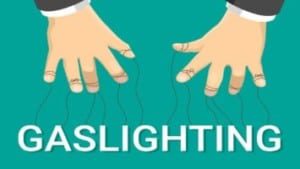There is something very refreshing about lemon water. The crisp tartness awakens your senses and suddenly makes the taste of everything else more intense. Your thirst is quenched, your senses are on overdrive, and you’re ready to tackle whatever comes next.
All of that from some lemons. It’s amazing.
Besides the taste, drinking lemon-infused water actually has a lot of health benefits. This isn’t just all talk. There is scientific proof that these benefits work. In this article, we’ll highlight 12 science-based lemon water benefits.
Twelve Science-Based Lemon Water Benefits
1. Drinking it warm on an empty stomach can help you manage weight.
This is a very significant benefit since over 70 percent of the U.S. population is overweight. With so many fad diets and weight loss “magic pills” on the market, it’s hard to know what works and what doesn’t. With lemon water, there is scientific evidence backing its ability to help you manage your weight.
In a study published by the Journal of Biochemistry and Nutrition in 2008, it was found that lemon polyphenols (found in the peel and the juice) suppressed weight gain and fat increase from a high-fat diet. While this doesn’t directly help you “lose” weight, this helps you to not gain weight. Pair this with a healthy eating and exercise routine and you could see pounds melt away.
2. It can help to fight off the symptoms of the common cold.
There is no cure for the common cold but that doesn’t mean that you can’t fight it off and get rid of it fast. Lemon has natural healing properties that you can benefit from when you drink water infused with it.
For example, lemon helps to break up congestion so you can get rid of mucus faster. Lemon can also help to soothe a sore throat when paired with honey and warm water. It also gives you a big dose of vitamin C, known to help reduce the effects and length of the common cold.
3. Lemon helps to fight off infections.
Lemons, or the lemon juice in particular, is full of flavonones. In particular, three subgroups of flavonones can be found in lemon. They are hesperetin, eriodictyol and naringenin. These flavonones help to boost overall antioxidant activity in the body [3]. Lemon is also full of Vitamin C, the only water-soluble antioxidant. This is why water infused with lemon is so helpful to fight off infections.
Antioxidants are like the body’s soldiers; they are the line of defense when infectious invaders enter the body. It never hurts to have the bigger army, so drinking lemon-infused water can give you that extra boost of antioxidants so you’re prepared for any type of infection that comes along.
4. Another benefit is prevention of osteoporosis.
Osteoporosis is a disease that is characterized by the lack of production of healthy bone mass even as old bone mass is disintegrated. Lemons contain vitamins and minerals that encourage bone and cell production throughout the body.
Water infused with lemon will give your body a boost of minerals such as magnesium and phosphorus. In addition to vitamin C, you’ll also get a healthy dose of vitamin B. These vitamins and minerals are especially important for seniors because osteoporosis tends to hit people during their senior years. Drinking water infused with lemon on a regular basis can help promote healthy bone mass production all throughout your life.
5. Lemon water offers a great mood stabilizer.
Something about drinking water infused with lemon just makes you feel good. This is because water infused with lemon has natural properties that affect your mood and your cognitive health.
Studies have shown that regular consumption of lemons helps to prevent depression and memory problems. This is due to the fact that lemons are a great source of potassium. Potassium boosts cognitive functioning by strengthening electrical activity in the brain.
Potassium is highly water-soluble, so water is the best way to deliver this important nutrient to your body. It is also considered as an electrolyte because it can conduct electrical impulses in water [4]. This is what makes it highly effective inside of the body and why drinking water infused with lemon does wonders for your mood.
6. A morning dose of lemon water can help maintain your pH balance.
The body has to maintain a healthy balance between acidity and base. On a scale of 0 to 14, the acid-base rating should be around a 7.4 with zero being completely acidic and 14 being completely basic.
Most of the time, your body maintains your pH balance through your breathing–you exhale carbon dioxide every time you breathe out, which keeps the balance. Sometimes this process might not happen the way it should. When this process malfunctions, alternative methods must be used to balance the pH level. This is where lemons come in.
Electrolytes can help with a pH imbalance and, as discussed in the previous section, lemons give you electrolytes (potassium). Therefore drinking lemon water on a regular basis can keep you prepared in case of a pH level imbalance.
7. Lemon-infused water contains compounds that could reduce the risk of breast cancer.
Cancer research is one of the most heavily researched topics on the planet. It’s always a big deal when research find even the smallest breakthrough, so it’s no surprise that everyone was excited when it was discovered that lemons could reduce the risk of or even prevent breast cancer.
Lemons contain limonin glucoside and from that our bodies derive limonin. This substance has also been shown to reduce cholesterol levels. So, dodging a heart attack is another one of the lemon water benefits.
8. Adding lemon to your water helps to boost your water intake.
There are a lot of people who don’t like to drink water no matter how important it is. We need water to survive–and we need a lot of it. On average, about 60% of they body is made of water so even if you don’t like the taste, you need to drink water anyway.
Lemon can be the catalyst for you to drink the water that you need. It’s very low in calories and high in all the other good stuff, so you can use it to mask the bland flavor of water.
9. Water infused with lemon can give you an energy boost.
Just like lemon-infused water can boost your mood, it can also boost your energy. This means that you can ditch all that unhealthy caffeine (okay, we know you aren’t ditching coffee anytime soon, but you could at least cut back on it). Instead, pick up a cup of water and some freshly sliced lemon wedges. Scientifically speaking, there are a couple of different ways that that lemon-infused water improves your energy:
- The vitamin C in combination with the citrus bioflavonoids in the lemon cause your blood to circulate more freely, leading to increased energy.
- The acid in lemon juice aids the digestive system in breaking down food faster so that your body can use it for energy.
10. Lemon water benefits your skin.
Since lemons have such a vast amount of vitamin C (up to 40% of the recommended daily amount for a 2,000 calorie diet) it can really have a positive affect on your skin. Vitamin C acts like a protective barrier for your skin against free radicals and other harmful substances in the surrounding environment.
The water itself keeps your skin looking good as well due to increased hydration since you’ll probably want to drink more and more lemon-infused water. Increased hydration keeps skin looking young, healthy, and wrinkle-free for as long as possible.
11. Lemon-infused water acts as a detox agent.
Unless you are a very clean eater, every day your body gets filled with a lot of gunk. That gunk can lead to weight gain, constipation, diarrhea, fatigue, and more.
Your body is almost like a car that needs an oil change; you just won’t function at your maximum level if it’s dirty. Lemon water is your oil change. It helps to flush out all the toxins that the body holds onto.
12. It could prevent kidney stones.
Anyone who has ever suffered from a kidney stone can tell you that any preventative measure for kidney stones is welcome. Kidney stones form when mineral deposits in the urine clump together to make little stones. This happens when citrate is missing from urine.
Doctors can prescribe citrate supplements to help with this or you could just drink lemon-infused water since lemons are naturally abundant in citrate. On top of that, the water helps to keep the kidney flushed out so you get two benefits in one. Drinking lemon water could potentially prevent or at least slow down one of the most painful conditions that you could have.
Final Thoughts
There is a lot more to lemon water than a crisp, refreshing taste. Lemon water benefits your health in so many different ways. We’ve listed twelve of the best benefits you’ll reap with regular consumption. The best part is that it’s safe, unlike a lot of “supplements” or “formulas” that have been chemically manufactured.
Of course, if you have a citrus fruit allergy then this may not be safe for you (but that’s rare). So what do you have to lose? Give lemon-infused water a shot and see how many of the twelve benefits you’ll earn.











